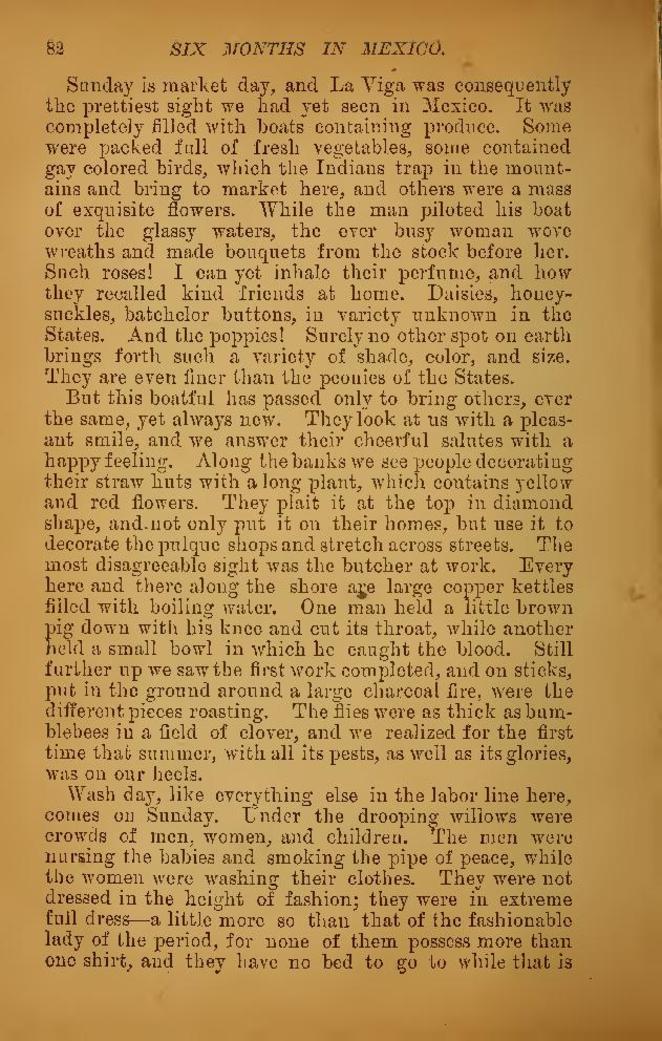Sunday is market day, and La Viga was consequently the prettiest sight we had yet seen in Mexico. It was completely filled with boats containing produce. Some were packed full of fresh vegetables, some contained gay colored birds, which the Indians trap in the mountains and bring to market here, and others were a mass of exquisite flowers. While the man piloted his boat over the glassy waters, the ever busy woman wove wreaths and made bouquets from the stock before her. Such roses! I can yet inhale their perfume, and how they recalled kind friends at home. Daisies, honeysuckles, batchelor buttons, in variety unknown in the States. And the poppies! Surely no other spot on earth brings forth such a variety of shade, color, and size. They are even finer than the peonies of the States.
But this boatful has passed only to bring others, ever the same, yet always new. They look at us with a pleasant smile, and we answer their cheerful salutes with a happy feeling. Along the banks we see people decorating their straw huts with a long plant, which contains yellow and red flowers. They plait it at the top in diamond shape, and not only put it on their homes, but use it to decorate the pulque shops and stretch across streets. The most disagreeable sight was the butcher at work. Every here and there along the shore are large copper kettles filled with boiling water. One man held a little brown pig down with his knee and cut its throat, while another held a small bowl in which he caught the blood. Still further up we saw the first work completed, and on sticks, put in the ground around a large charcoal fire, were the different pieces roasting. The flies were as thick as bumblebees in a field of clover, and we realized for the first time that summer, with all its pests, as well as its glories, was on our heels.
Wash day, like everything else in the labor line here, comes on Sunday. Under the drooping willows were crowds of men, women, and children. The men were nursing the babies and smoking the pipe of peace, while the women were washing their clothes. They were not dressed in the height of fashion; they were in extreme full dress—a little more so than that of the fashionable lady of the period, for none of them possess more than one shirt, and they have no bed to go to while that is
